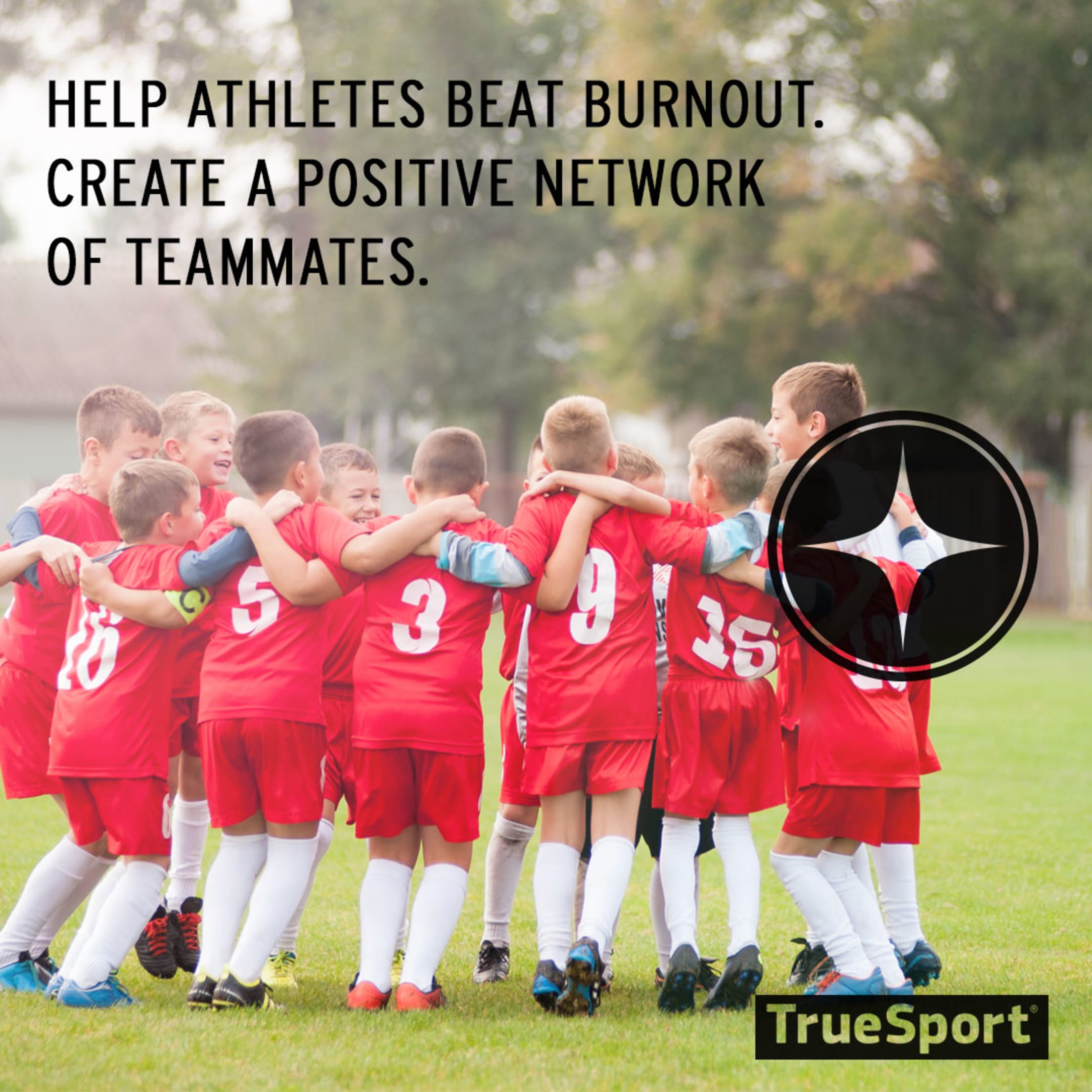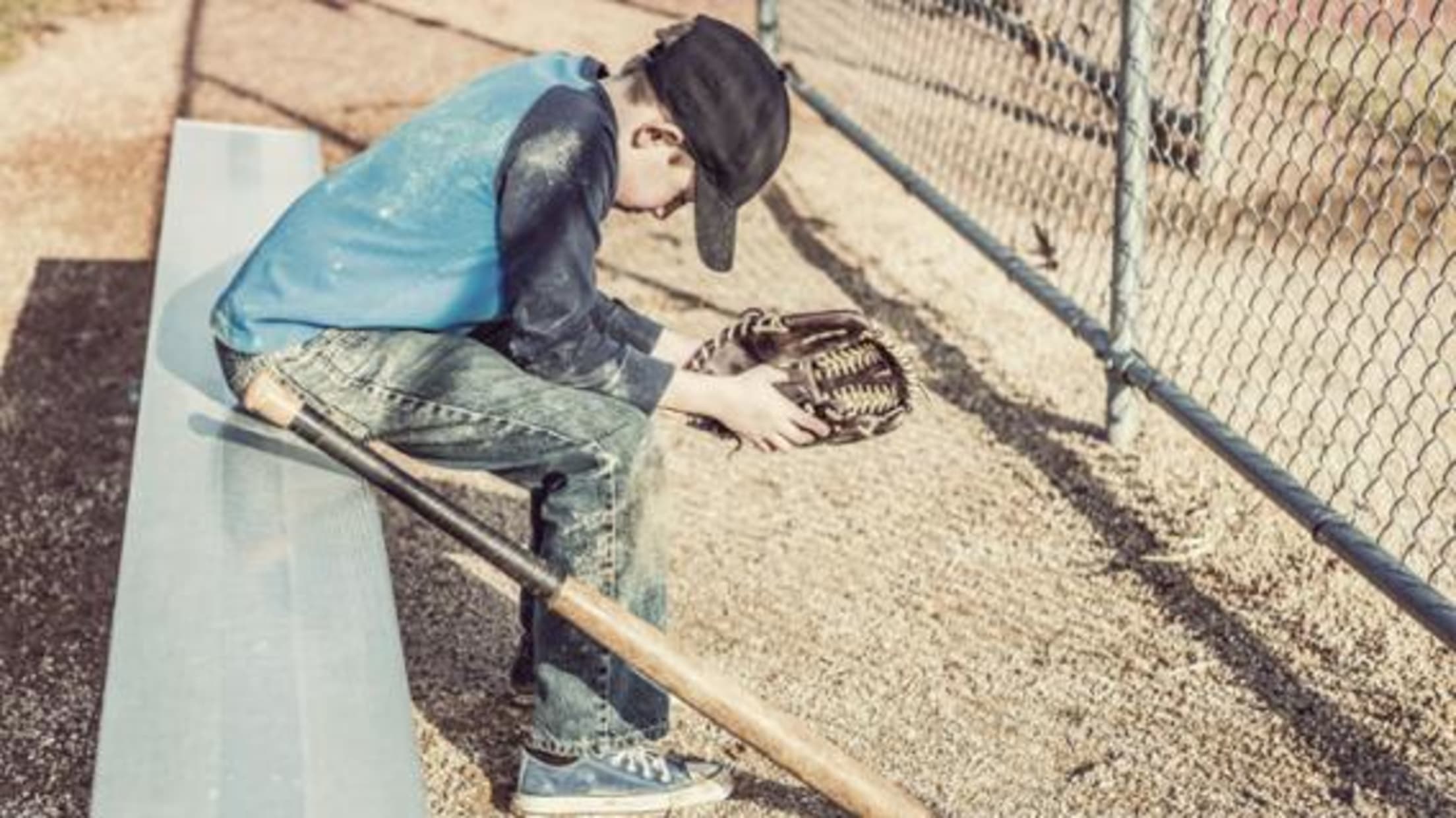TrueSport: August 2019

How to celebrate wins when one kid isn't winning, five practical self-care tips for youth athletes and how to talk about mental wellness this month from TrueSport.
Trending
Sport families: How to celebrate wins when one kid isn't winning
A young athlete's teammates, siblings, coaches and teachers can leave a lasting impression, but parents have the greatest impact on how a child feels about his or her performance in sport, says Joel Fish, PhD, sports psychologist and author of 101 Ways to Be a Terrific Sports Parent.
When you have two or more children in sports, it can be a challenge to give each one the same level of positive attention -- especially when one seems to be winning all the time, while the other is struggling. Fish shares advice on how to find the right balance between celebrating success and prioritizing progress rather than just winning.

Praise effort not results
It's natural to be excited about a win, and there's nothing wrong with celebrating it, says Fish. "But focus more on your core values versus results: make sure you're praising other successes, like developing new skills or putting in a strong effort. You have a great opportunity to teach children multiple goals -- there are other ways to define success that aren't results-driven."
This applies to both your winning child and the one who's struggling in sport - it's a great way to give both children equal amounts of praise and attention.
Check your reaction
Understanding how important your reaction is, and becoming aware of it, can go a long way towards promoting good behaviors on your part.
"You have an immediate emotional reaction when a child wins, or when one loses," Fish says. "That's the main issue - and if you can pay attention to how you're feeling and reacting, what your reaction is to success or failure, then you're better able to manage those feelings and give a more value-driven response."
Make sure everyone gets what they need
It can be a challenge to manage a budding career for a highly talented young athlete while making sure that his or her siblings are still thriving as well. Some sports, like figure skating, involve immense amounts of travel and even potential relocation, and Fish notes that it's important to take your other children into account in those times.
That may mean a larger family discussion about moving to a different city, or, on a smaller scale, simply making sure that your other children also have activities that they're passionate about, even if they aren't getting the same kind of results.
Consider shifting focus
"If your child who is struggling or not having success in sport still enjoys being on the team and having fun, that's great," says Fish. "But remember, that child can also consider exploring other sports if he or she isn't having fun. Parents get stuck trying to channel kids into one certain sport but there's a huge range of activities for kids to get involved in. I've seen kids go from team sports to something like cycling and really flourish, so you may want to try other sports and keep in mind that what one of your children likes, the other may not."
Be mindful of the winning child
You may think that the biggest challenge is making sure that the athletes who aren't winning don't suffer from a lack of self-esteem because of their talented sibling, but the child who's winning deals with immense pressures as well.
Even though your focus should be on effort, give praise when either your athletes achieve something great - like a win. A win is still a win, and your athlete should be recognized for the hard work they contributed to achieve that.
_____
"There's a lot more prestige connected to winning now, compared to 30 years ago when the mentality was more centered around the motto, 'it's not about if you win or lose, it's how you play the game,'" says Fish. Today, the landscape has shifted for how parents view youth sports. Winning has meaning to it. So, when one sibling wins, and another doesn't, that's a challenge for parents in a way that it never was before.
Excitement around a win and disappointment around a loss for your kids are both completely normal feelings, says Fish. Just remember that as a parent, it's your job to also make sure that your child doesn't feel as though your love and approval is conditional on their results in sport.
Parents
Five practical self-care tips for youth athletes
From dealing with pressure on social media, to balancing academics, sports and extracurricular activities, teenagers are under more stress than ever.
Amy Saltzman, MD, author of A Still Quiet Place for Athletes, believes that athletes who practice mindfulness develop a more balanced approach to self-care, which ultimately helps them achieve peak performance in sport and in life.
According to Saltzman, "Being mindful means simply being aware of what is happening here and now with kindness and curiosity, so that we can choose our behaviors." She adds that young athletes who "bring kind and curious attention to all aspects of their health and well-being have an advantage in learning what works best for them during training, competition, and in life."

Saltzman, a long-time athlete herself, explains that "in the long run, it's up to young athletes to learn from coaches, parents, nutritionists, athletic trainers, sport-specific articles and books, and most importantly their own bodies, and develop and refine the self-care routines that create the opportunity to perform at their best."
With that in mind, Saltzman shares five scientifically proven self-care habits athletes can practice to improve their physical health and maximize their ability to compete at their best.
Prioritize rest
According to the American Academy of Sleep Medicine, getting extra sleep over an extended period of time improves athletic performance, mood, and alertness.
Saltzman says, "Oftentimes in sports, young athletes are encouraged to push beyond their perceived limits to progress, but pushing too hard and too often can result in injury and physical, mental and emotional burnout."
Overtraining doesn't help anyone. Creating and actively implementing a proper rest and recovery schedule can prevent young athletes from reaching the brink of burnout and injury. By avoiding unhealthy extremes and prioritizing rest, you can help your athlete improve their physical and mental capacity.
Make healthier food choices
It's essential to the development of young athletes to fuel their bodies with well-balanced meals of nutrient-rich foods instead of processed foods. In addition to preventing major health issues like osteoporosis, diabetes, and heart disease, healthier, whole foods develop their brain function.
Saltzman encourages young athletes to "bring their kind and curious attention to what they eat, how they eat and how their body feels after they eat." Over time they can take note of which foods complement their physical exercise and build a meal plan around the foods that help their body function at its best.
In general, Saltzman notes that athletes' "bodies will function best if they eat natural foods, such as fruits, vegetables, whole grains, lean meats, milk, cheese and eggs."
Drink more water
Saltzman reports that "research shows that exercise performance is impaired when an athlete is dehydrated by as little as 2 percent of body weight. When the athlete loses an excess of 5 percent of body weight, their performance capacity is decreased by about 30 percent."
Encouraging your young athletes to properly hydrate is essential to their athletic performance and, more importantly, to their overall health and well-being.
Saltzman adds, "It's especially important for athletes to be aware and properly hydrate when they're traveling, competing in hot or humid climates, or at altitude."
Focus on conditioning
Youth sports offer athletes a place to improve their bodies' overall performance and physical capacity. Not all conditioning has to be sport-specific.
Saltzman explains, "Young athletes can benefit by adding age-appropriate, developmentally-paced strength, speed, endurance, flexibility and core strength to their exercise routines. And if young athletes do these activities mindfully (being present and discerningly aware of how their bodies feel, rather than just going through the motions), they will increase their physical, mental, and emotional strength, endurance, and flexibility."
This self-awareness gives athletes a keen sense of when their bodies need to rest and recover, or hone in on where they need to dig deeper.
Develop game day routines
For young athletes, game day often requires the parent shuttle or a school bus ride to the game. According to Saltzman, "It is wise for young athletes to develop a game day travel routine that allows them to arrive physically, mentally and emotionally ready to compete at their best."
Saltzman recommends athletes create routines that will help them be prepared for game day by:
- Creating a detailed game day packing list
- Having healthy snacks and plenty of water on hand for travel
- Developing a mental preparation habit, such as listening to music, practicing mindfulness or visualizing their ideal performance during the game
______
Saltzman concludes, "Athletes who are actively paying attention to their health and preparation are less likely to suffer from burnout, overuse injuries, overtraining, adrenal insufficiency and chronic fatigue syndrome."
Help your young athletes develop a stronger mindset to deal with the stresses of sport and daily life by introducing self-care strategies and encouraging them to practice them daily.
Coaches
How to talk about mental wellness with your athletes
It can be a daunting task, speaking to your athletes about mental wellness. It's a sensitive topic and one that can't be tackled lightly. Knowing that, psychiatrist Dave Conant-Norville, MD, shares some valuable tools and tips on how to start the conversation about mental well-being with your athlete, and how to keep those conversations moving forward.
Understand that mental wellness starts now
"Mental wellness includes all of the processes that go on in your brain -- thinking, emotions, behavior, relationship processing. There's a lot going on. The idea of mental wellness is optimizing, being free of disease. We want to talk about mental wellness in order to help prevent mental illness," he adds. "We shouldn't start the conversation after there's already a problem, we want people to be mentally well."

Start with the performance benefits
Some kids are naturally going to be skeptical when it comes to talking to any adult about feelings and emotions, but Conant-Norville suggests leading the conversation with an explanation of mental wellness as performance-enhancing for sport.
"I always say your health is only as good as your mental health, because it's the governing factor for the rest of your health," he adds. "It impairs your physical function. An athlete can't function optimally without mental wellness. It's really important to get over the dichotomy of the mind and body, that the two are separate."
Implement mindfulness
Deep breathing and meditation are two of Conant-Norville's favorite practices for athletes, and it's one of the fastest, simplest ways to get 'buy in' from your athletes.
Starting and ending practice with a minute or two of silence or even using a short guided meditation can be a great way to introduce the key mindfulness element of mental well-being into your athlete's life without adding stress of 'meditation as homework.' For parents, this can also be a great after-dinner wind-down that the whole family could take part in.
Provide other mental tools
"Successful coaches help students build a vocabulary around things like stress and anxiety. They teach game-day tactics like how to focus and how to relax and mentally prep for a big game," says Conant-Norville. "For example, if you're not sleeping adequately, you're not going to do well," he adds.
Help athletes create a toolkit, whether it be teaching them about the importance of full nights of sleep, practicing deep breathing exercises that an athlete can use before a key practice, or simply making it OK for an athlete to come to you with an emotional issue.
Create a trusting community
Creating a sense of trust and fun goes a long way towards encouraging mental wellness. According to Conant-Norville, it also creates a sense of community and encourages open lines of communication. The team that truly enjoys their time together is the team that can share their feelings.
But, don't just start a conversation with 'tell me about your emotions,' says Conant-Norville. That puts most athletes on the defensive, and likely won't yield authentic results. The same is true for parents: it's easy to want to demand an emotional conversation but without that sense of trust, it's unlikely that your athlete will be open with you.
_____
Part of opening a conversation around mental wellness is paying attention to warning signs and knowing when it's time to seek professional help for an athlete.
"Coaches are not therapists. You're not equipped to treat mental health issues," warns Conant-Norville. If you suspect that an athlete is dealing with some kind of mental health problem, make sure the athlete gets the help he or she needs from an expert.
About TrueSport
TrueSport®, a movement powered by the experience and values of the U.S. Anti-Doping Agency, champions the positive values and life lessons learned through youth sport. TrueSport inspires athletes, coaches, parents and administrators to change the culture of youth sport through active engagement and thoughtful curriculum based on cornerstone lessons of sportsmanship, character-building and clean and healthy performance, while also creating leaders across communities through sport.
For more expert-driven articles and materials, visit TrueSport's comprehensive LEARN resource.
This content was reproduced in partnership with TrueSport. Any content copied or reproduced without TrueSport and the U.S. Anti-Doping Agency's express written permission would be in violation of our copyright, and subject to legal recourse. To learn more or request permission to reproduce content, click here.
